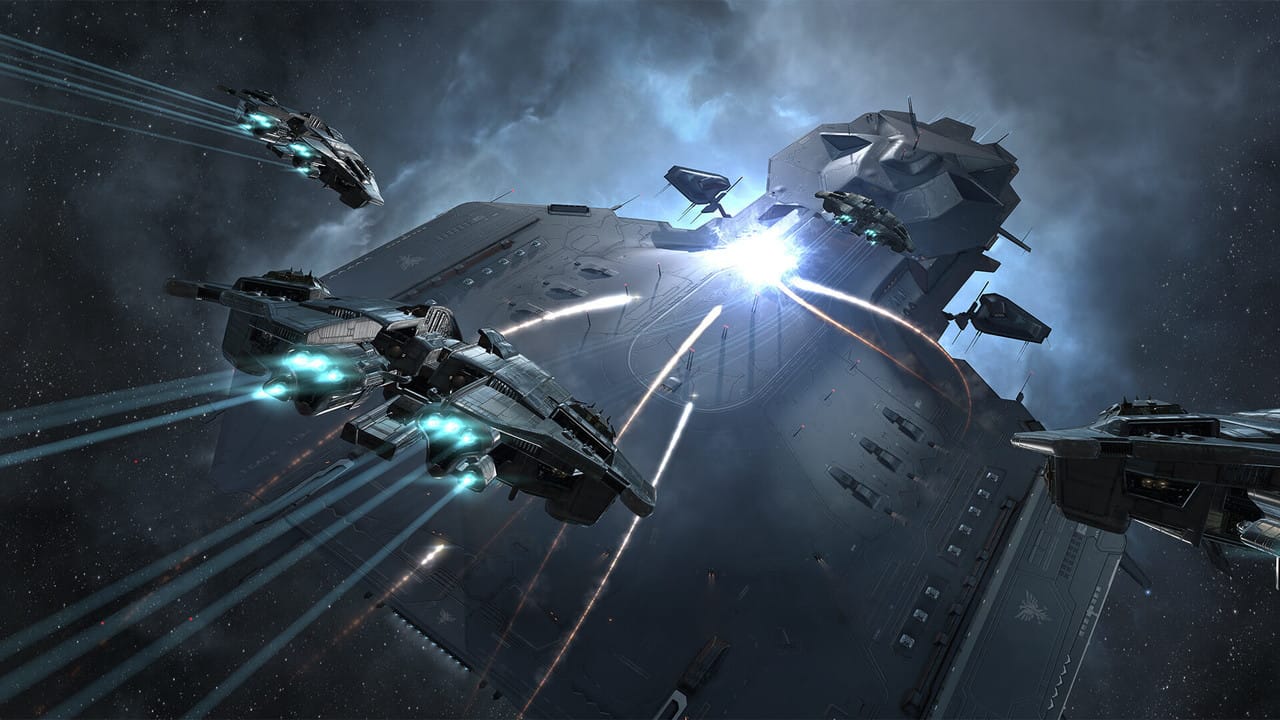The Academic and Financial Utility of Virtual Economies

In 2015, The Pew Research Center found that 24% of American adults think that most video games are a waste of time. Clearly, they’re not geeky enough to have read about the real world impacts of games like EVE Online, World of Warcraft, or Team Fortress 2.
EVE is usually the game that comes up first when economists discuss virtual economies. What you do is pilot spaceships, mine ore, and fight in what is probably the most laissez faire economy in history. As a sandbox, EVE allows you to start or join corporations that manage activities such as mining, hauling, exploring, playing the markets or even building items and ships. Or you could become a pirate and steal from said corporations. For a full list of what you can do in-game, see this infographic.
The in-game economy of EVE requires monitoring (there’s tons of data, so much that the company has released 50-page quarterly reports in the past) and even regulation to prevent collapse, which is definitely possible (see Runescape’s Economic Crash of 2003). One major aspect of controlling this economy is controlling inflation of the currency. The folks over at Extra Credits have a very interesting video on how designers do this:
So what value is there here? Well, if you were to trade the virtual goods in real dollars, you could be out as much as $8,000 for some of the rarer ships in EVE. And the developer, CCP, also allow you to purchase something called PLEX. PLEX is essentially a super-currency, which you can use to purchase game time (the best version of EVE is not free, it’s a subscription). You can buy PLEX with dollars, or — for those who have enough — ISK (the in-game currency).
The most famous MMORPG, World of Warcraft, has recently delved into virtual and actual economic crossover with WoW Tokens, a product similar enough to EVE’s PLEX. Like PLEX, Wow Tokens can be used to purchase game-time, sold for immediate gold, or traded in-game. You can invest in one when the price is low, and sell when the market jumps.
Team Fortress 2 is another classic virtual economy, and one that got away from the developers. So Valve hired Greek economist Yanis Varoufakis to help them fix that. Not only was he able to do so, but he has used this virtual economy to reinforce academic theories of economics. My favorite example is the natural evolution of a barter economy to one with a single currency. I recommend reading his blog post about it, arbitrage and equilibrium here.
As you can see, these are highly complex digital economic landscapes. And in order to provide high quality service to their customers, developers have hired academic experts to help monitor and control these markets (which has helped academic economics overall). And, over time, consumers have attributed so much value to MMORPG items that they now have a real-world dollar amount.